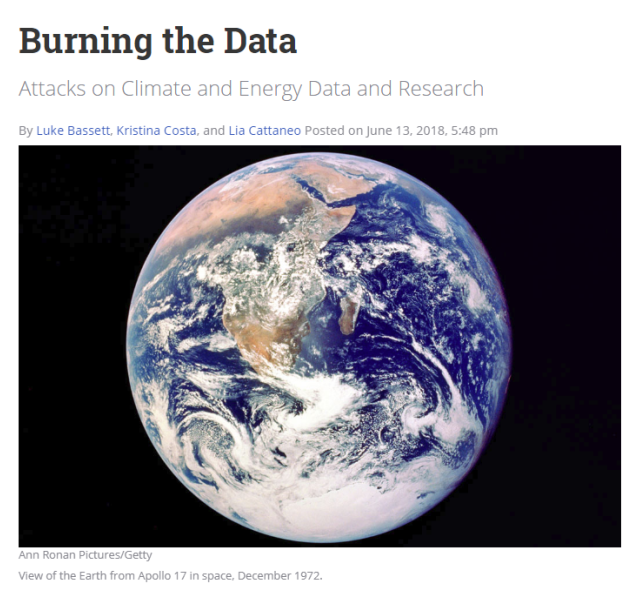File:Hannah Arendt.jpg

Original file (527 × 680 pixels, file size: 51 KB, MIME type: image/jpeg)
October 14, 2020
Emily Haber @GermanAmbUSA
German Ambassador to the US
····································································································
From GreenPolicy360:
One of her many legacies: Totalitarianism can flourish where people systematically refuse to engage with reality, and are ready to replace reason with ideology and outright fiction.
Re: the 'Transformation of facts into opinions'
Everyone does not have a right to his ignorance under the pretext that everyone has right to his opinion
Perhaps the most striking and frightening aspect of the German flight from reality is the habit of treating facts as though they were mere opinions. For example, the question of who started the last war, by no means a hotly debated issue, is answered by a surprising variety of opinions. An otherwise quite normally intelligent woman in Southern Germany told me that the Russians had begun the war with an attack on Danzig; this is only the crudest of many examples. Nor is this transformation of facts into opinions restricted to the war question; in all fields there is a kind of gentlemen’s agreement by which everyone has a right to his ignorance under the pretext that everyone has a right to his opinion—and behind this is the tacit assumption that opinions really do not matter. This is a very serious thing, not only because it often makes discussion so hopeless (one does not ordinarily carry a reference library along everywhere), but primarily because the average German honestly believes this free-for-all, this nihilistic relativity about facts, to be the essence of democracy. In fact, of course, it is a legacy of the Nazi regime.
— Hannah Arendt, "The Aftermath of Nazi Rule — Report from Germany" Commentary, Oct 1950
~
GreenPolicy360 / Steven Schmidt:
Your GreenPolicy siterunner studied with the Graduate Faculty of the New School for Social Science. While I worked for years in New York publishing, I read, discussed and debated, wrote and carried on an old intellectual tradition at the university that in many ways carried on the European liberal studies tradition. Our faculty was, in many regards, academically famous and professors/authors such as Hannah Arendt and Robert Heilbroner kept my mind engaged as I read hundreds of classics over the years, including "The Wealth of Nations". Although I focused on "political economy", I ranged wide over the history of ideas.
These days I think more and more about Hannah Arendt and her lessons.
On the Origins of Authoritarianism stands out, here on my bookshelf, and in our modern times.
The threats of autocracy are real and growing, with dis- and mis-information wielded, a cyberpolitics and cyberwarfare of manipulation, of big lies and big lies repeated until believed. An onslaught of online opinion, diversions and advertising aiming for eyeballs and clicks, metrics that can be monetized are interspersed with state of the art marketing techniques pushing a breakdown of civility and common purpose.
As Hannah wrote of it in earlier times, opinions are not facts, but democracy is threatened when opinions reject facts.
It's a good time for an upclose look at the work of Hannah Arendt.
~
Steven J. Schmidt in Eco-nomics
In the 1970s, as a young editor at a NY publishing and printing company, I took three years at nights to immerse myself in a History of Ideas / Political Economy program at the Graduate Faculty of the New School, the New School for Social Research.
Hannah Arendt was there when I arrived in the city and her reputation and the university's reputation as a "University in Exile" originally having attracted some of the top European liberal scholars in the world spoke to me of deep thinking.
Professors like Robert Heilbroner and David Gordon opened new vistas of thought as we introduced and debated capitalism versus new forms of economics that could begin to address conflicts and contradictions within capitalism. The legacy of world wars and the Vietnam war loomed in the rear-view mirror and the nuclear weapons brink of "mutually assured destruction" as the central strategic policy of the "Cold War" mentality loomed in pervasive form.
From Climate Problems, Climate Solutions
Perhaps it is human nature to be overwhelmed, or what my teacher Hannah Arendt described in her book the [1] Human Condition] as the realms of labor, work, and action. Many choose to go along to get along, and not act when the threats grow extreme, even existential. But to those who take the chance to make a difference and stand up and do your best to make changes that change the world for the better, I salute you for your bravery.
File history
Click on a date/time to view the file as it appeared at that time.
| Date/Time | Thumbnail | Dimensions | User | Comment | |
|---|---|---|---|---|---|
| current | 19:26, 14 October 2020 |  | 527 × 680 (51 KB) | Siterunner (talk | contribs) |
You cannot overwrite this file.
